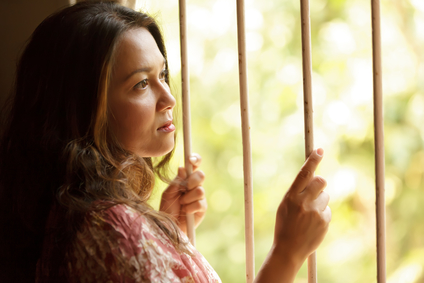Mental illness is challenging for everyone involved – including a patient’s spouse or partner. However, when both partners have mental illness, the comorbidity of conditions between couples can create a unique relationship dynamic that can be challenging but also immensely supportive for both partners.
People with Mental Illness May be Drawn to Each Other
According to one study, people with mental illness are 2-3 times more likely to choose partners with mental illness than not. Certain conditions, like schizophrenia, ADHD, and autism were even higher. Where two spouses share a mental illness, they are also more likely to pass that mental illness on to their children, making it even more likely that there will be comorbidity in the household.
Get Help for Couples Facing Mutual Mental Illnesses
Talk to a psychotherapist today about individual and couples’ therapy to help with couples’ comorbid conditions.
Comorbidity Between Couples Can Increase Mental Illness Symptoms
The negative symptoms of mental illness can profoundly affect a person’s life, and their relationships. Living with a person with mental illness can be challenging enough. But when both partners have mental illness, the comorbidity of their mental conditions can create problems of its own.
When two partners share mutual mental health disorders, it can create an effect called “affect concordance.” This is the experience where the couple’s shared emotional state can harm both the individuals, and the relationship itself. This can even extend to delusions or other forms of psychosis in a condition previously called “folie à deux.” Folie à deux was removed from the most recent version of the Diagnostic and Statistical Manual (DSM-V) as its own diagnosis. Instead, it is now referred to as two instances of delusional disorder shared between partners.
Two of the most common comorbid conditions between couples are depression and anxiety. Women whose partners suffer anxiety are 3 times as likely to face anxiety themselves. With depression, it’s 4 times as likely they too will be depressed. This can create problems because one spouse’s depressive or anxious episode can trigger the other, creating a spiral of symptoms while at the same time increasing the chances of relational conflict.
Healthy Relationships Can Help Partners Cope with Mental Illness
At the same tie, a healthy relationship can be a key tool in helping individuals cope with the symptoms of their mental illness. Each partner needs to address their own mental health conditions, while at the same time learning to be a supportive caregiver to their spouse or partner. It is essential for couples to balance their individual needs for self-care with the empathy, understanding, and support they give to one another.
This depends on both partners being aware of the mental illness, including one another’s symptoms, triggers, and coping mechanisms. When both partners have mental illness, it is important that each is receiving psychotherapy or other treatment – most often by separate providers – and given a place to express their feelings outside the relationship dynamic. It may also be beneficial for couples who share mental health challenges to engage in couples’ therapy. This can help navigate the pitfalls of mental illness by working with a psychotherapist to improve the dynamics within the relationship.
In addition, both partners need to develop effective communication strategies, and to communicate openly about the mental health symptoms they are facing. This can help to interrupt the spiral of symptoms if one or both partners can recognize the emotional intensity or outburst for what it is, name it, and regulate it, rather than mirroring it and creating an emotional echo chamber. Both spouses also need to be willing to communicate boundaries and express the need for self-care or breaks from intense emotional circumstances.
At the same time, partners can help one another resist the stigma and judgment others impose on mental illness. Those who struggle with mental illness often face adverse societal attitudes that can affect self-esteem, confidence, and general well-being. A strong support network is essential to combatting the effect this can have on their mental health. In a healthy relationship, the person’s spouse is often uniquely qualified to provide such a support. However, partners must also be careful not to echo that stigma or judgment within the safe space of the relationship. Navigating this can be challenging, but if done well, with the help of a psychotherapist, it allows partners facing mental illness to find strength and support from one another and their relationship together.
David Stanislaw is a psychotherapist with over 30 years of experience. He helps individuals and couples learn strategies for coping with mutual mental illnesses. Contact David Stanislaw to get help today.


 Common Treatments for Depression
Common Treatments for Depression Are Childhood Family Patterns Affecting Your Marriage?
Are Childhood Family Patterns Affecting Your Marriage? 7 Ways Therapy Can Make You a Better Parent
7 Ways Therapy Can Make You a Better Parent